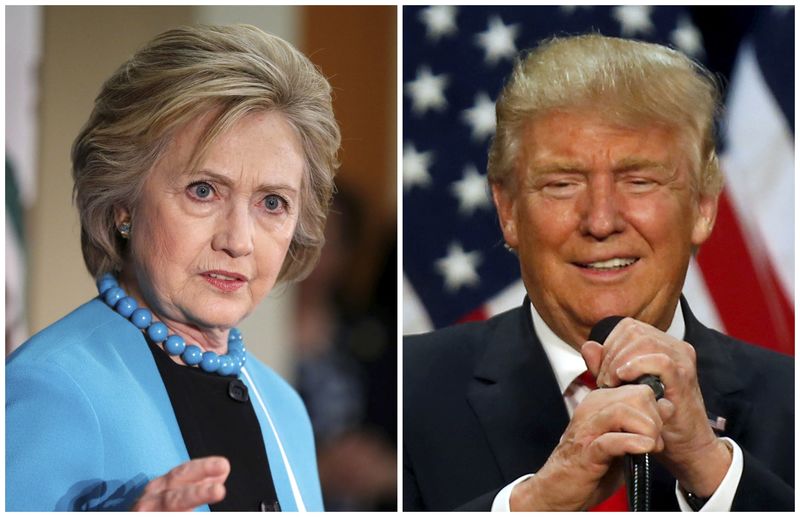By Chris Kahn
NEW YORK (Reuters) - Donald Trump's support has surged and he is now running nearly even with Democrat Hillary Clinton among likely U.S. voters, a dramatic turnaround since he became the Republican party's presumptive presidential nominee, according to a Reuters/Ipsos poll released on Wednesday.
The results could signal a close fight between the two likely White House rivals as Americans make up their minds ahead of the Nov. 8 election to succeed Democratic President Barack Obama. As recently as last week, Clinton led Trump by around 13 points in the poll.
In the most recent survey, 41 percent of likely voters supported Clinton, the Democratic front-runner, and 40 percent backed Trump, with 19 percent not decided on either yet, according to the online poll of 1,289 people conducted from Friday to Tuesday. The poll had a credibility interval of about 3 percentage points.
The results reflect a big increase in support for Trump since he knocked out U.S. Senator Ted Cruz of Texas and Ohio Governor John Kasich last week to become the last Republican in the White House race.
There was no immediate comment from the Clinton or Trump campaigns.
Clinton, who has all but clinched the Democratic nomination over rival Bernie Sanders, has mostly led Trump in the head-to-head poll this year. Trump briefly matched her support a few times in 2016, most recently in mid-March, after U.S. Senator Marco Rubio of Florida, a favourite of the Republican establishment, dropped out.
Presidential elections are not decided by the national popular vote but by the Electoral College, which is based on state-by-state results.
Opinions are likely to change over the next six months as American voters become inundated with hundreds of millions of dollars in campaign advertising, highly publicized debates and a pair of party conventions.
Trump and Clinton both have much to prove to the American electorate. The Reuters/Ipsos poll found earlier this month that a majority of voters did not trust either candidate with key presidential responsibilities such as managing the U.S. economy, handling the role of U.S. commander in chief, and conducting themselves according to a “high moral standard.”
The candidates' choice of running mates could also be important. Voters surveyed in the poll said they would be more likely to support Clinton if her choice for vice president was a liberal, while Trump would help his chances if he picked someone experienced in politics and someone who is “consistently” conservative.
Trump’s rise in the polls coincides with his attempt to take over the reins of the Republican Party from leaders who clashed with him during a bruising and blustery primary fight.

U.S. House of Representatives Speaker Paul Ryan, the country's top elected Republican, said he would not immediately endorse Trump, and party elders including former Presidents George H.W. Bush and George W. Bush and the last two presidential nominees, Mitt Romney and John McCain, said they would not attend the Republican convention in Cleveland in July.